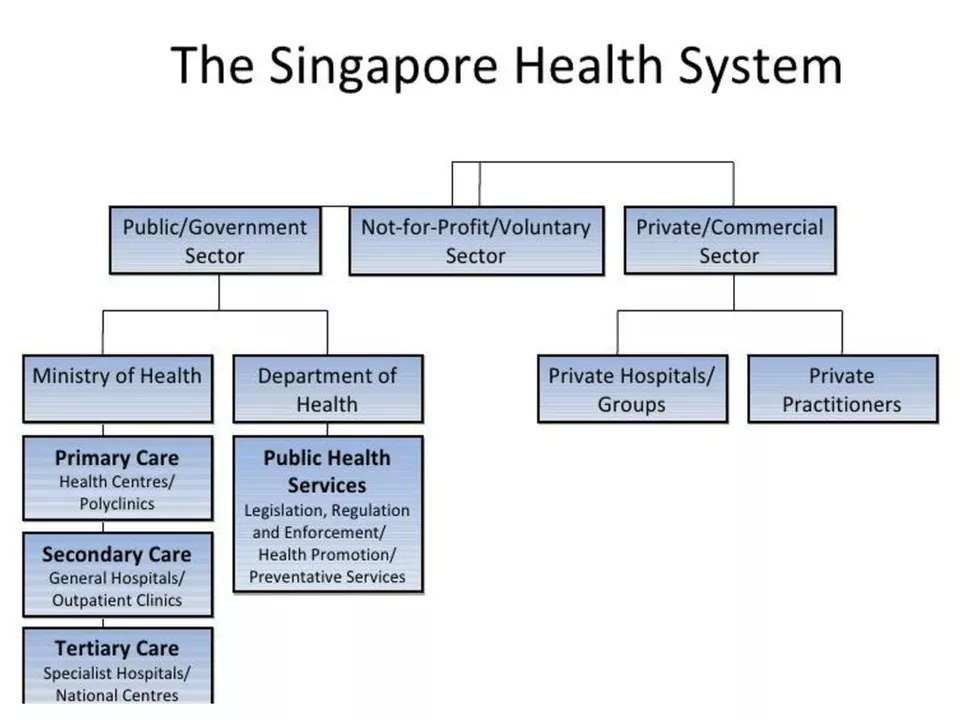Introduction to Mexico's Health Care System
As a blogger who frequently covers health-related topics, I have always been curious about the health care systems in different countries. Being a frequent traveler to Mexico, I have taken a keen interest in understanding their health care system. In this article, I will share my findings and personal experiences with Mexico's health care system, and provide you with a comprehensive understanding of what it's like.
The Structure of Mexico's Health Care System
The health care system in Mexico is a mix of public and private institutions. The public system, known as the Instituto Mexicano del Seguro Social (IMSS), provides health care services to the majority of the population, while private institutions cater to those who prefer or can afford private services. The public system is funded through a combination of government subsidies, employee contributions, and employer contributions, making it accessible to most Mexican citizens.
The Quality of Health Care in Mexico
One of the major concerns people have when it comes to health care in Mexico is the quality of services provided. From my personal experience and research, I can confidently say that the quality of health care in Mexico is quite impressive. Many hospitals and clinics, especially in urban areas, are equipped with state-of-the-art facilities and staffed with well-trained professionals. Furthermore, Mexico is known for its excellent dental care and cosmetic surgery services, which attract many medical tourists.
Access to Health Care in Mexico
Access to health care services in Mexico is generally good, especially in urban areas where hospitals and clinics are more abundant. However, in rural areas, access can be limited due to the lack of facilities and medical professionals. The Mexican government has been working to improve access to health care in these areas by investing in infrastructure and encouraging medical professionals to work in rural communities. Overall, the majority of the population has access to some form of health care, whether through the public or private sector.
Affordability of Health Care in Mexico
One of the significant advantages of Mexico's health care system is its affordability. The public health care system is accessible to most citizens at little to no cost, while private services are often considerably cheaper than those found in countries like the United States. This affordability has made medical tourism a booming industry in Mexico, with people traveling from all over the world to take advantage of the lower costs for medical procedures and treatments.
Health Care for Expats and Tourists in Mexico
As an expat or tourist in Mexico, it is essential to understand how health care works for non-citizens. Expats and tourists are not covered by the public health care system, so it is necessary to have private health insurance or be prepared to pay out-of-pocket for medical services. Many private hospitals and clinics in Mexico cater specifically to foreigners and offer high-quality services at affordable prices. Additionally, many doctors and medical professionals in Mexico speak English, making it easier for foreigners to communicate their needs and concerns.
Pharmacies and Prescription Medications in Mexico
Pharmacies are abundant in Mexico and can be found in almost every neighborhood. Many medications that require a prescription in other countries can be purchased over-the-counter in Mexico, making it relatively easy to obtain necessary medications while traveling. However, it is essential to exercise caution and consult a medical professional before self-medicating, as some drugs may have different brand names or dosages than what you may be familiar with in your home country.
Final Thoughts on Health Care in Mexico
In conclusion, the health care system in Mexico offers excellent quality services at affordable prices. While access to health care may be limited in some rural areas, the majority of the population can access the services they need through the public or private sector. As a foreigner in Mexico, it is essential to have private health insurance or be prepared to pay for medical services out-of-pocket. Overall, Mexico's health care system is an asset to the country and its people, and I am continually impressed by the quality and affordability of the services provided.



